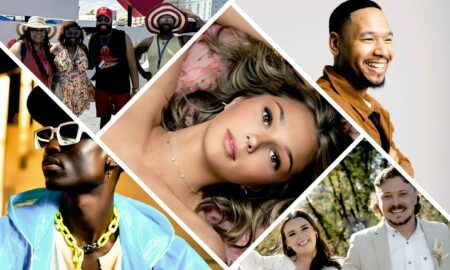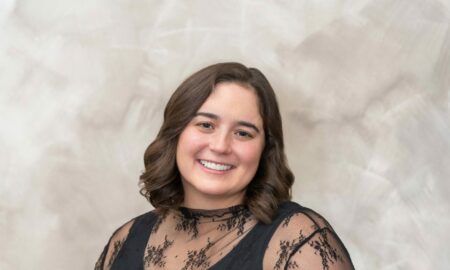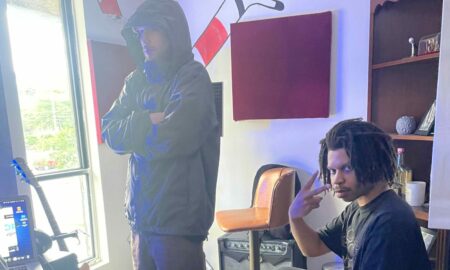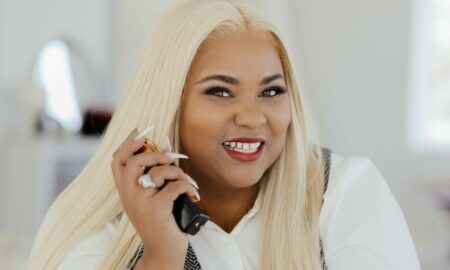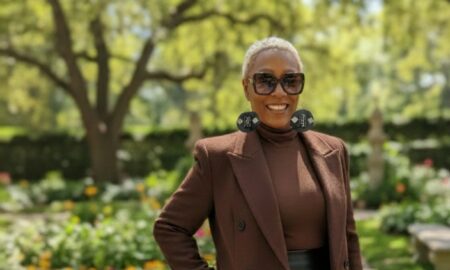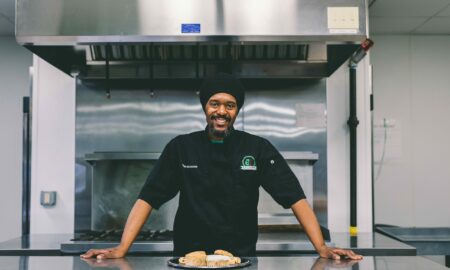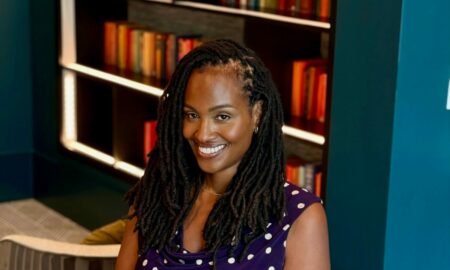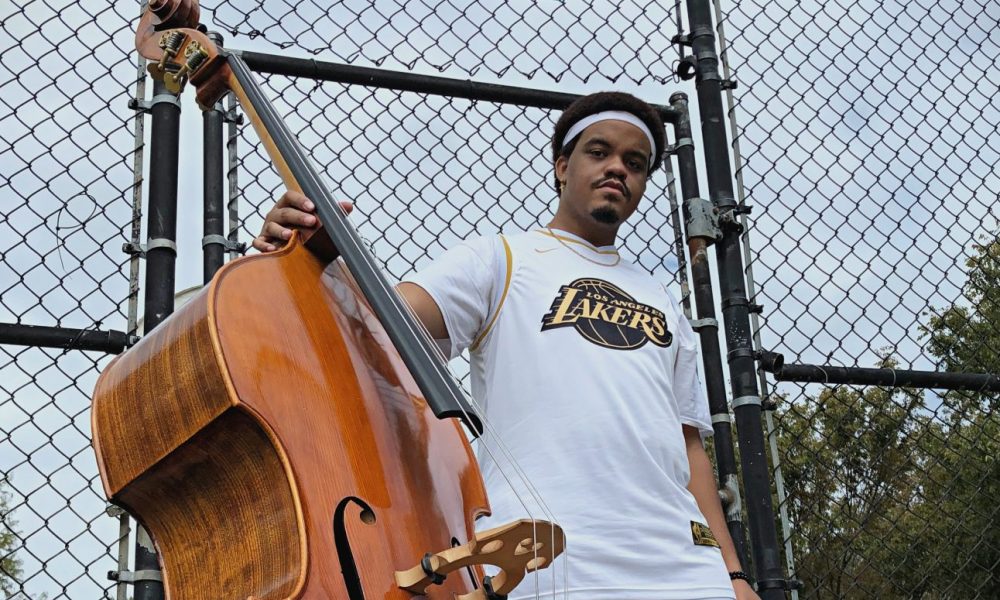

Hi Christian, can you start by introducing yourself? We’d love to learn more about how you got to where you are today?
My name is Christian Harvey, and I am from Riverdale, GA. I have been playing double bass since I was eleven years old. When I was thirteen years old, after two years of playing double bass, I auditioned and won a spot in the GMEA Allstate Orchestra, performing alongside the best string players in my age group. Ever since, I have been performing my instrument. After middle school, I auditioned for the newly-built fine arts high school in my hometown. Upon getting my acceptance into the school, my music career took off. I have performed at the Jimmy Carter Center, the Governor’s Mansion, Carnegie Hall (New York), Clayton County’s Performing Arts Center, and many more venues at a young age. While I was sixteen, I participated in Georgia’s “Governor’s Honors Program,” held at Valdosta State University. While at the honorary summer program that selected two bassists from the state, I studied with Dr. Howard Hsu and performed in symphonic, chamber, jazz, and theatrical pit ensembles.
While I was seventeen, I won the double bass position in the GMEA Allstate Jazz Orchestra, a position that is only given to one jazz bassist across the entire state of Georgia. I am currently a junior at Columbus State University, where I currently study Music Performance with a concentration in Double Bass with Dr. Patricia Weitzel. Along with preparing for auditions and competitions, I am the co-founder and Vice President of the Black Schwob Society (BSS). BSS is the inaugural black student union of the Schwob School of Music. Between double bass, Dr. Weitzel, and BSS, there are more than plenty of things that excite me about studying at Columbus State. I am currently aiming to have my Viennese transcription of Vanhal’s Concerto for Double Bass published. My goal is to win competitions and auditions while at Columbus State and receive a Graduate Assistantship or fellowship after graduation.
Can you talk to us a bit about the challenges and lessons you’ve learned along the way. Looking back, would you say it’s been easy or smooth in retrospect?
If the road was smooth, I don’t think I would be as successful as I am. The biggest struggle has big, great dreams but not enough resources to fulfill them. Classical music is a very expensive field, and I just so happened to pick one of the most expensive instruments—the average professional double bass costs around $15,000, and a professional bow costs around $3,000. So if you total those two things, along with other necessary gear and equipment, the instrument would total more than a brand new Honda Civic. Because of these extreme costs, I was never able to afford private lessons while I was in middle school and high school. This never bothered me until I started doing competitions with other kids my age. In the classical world, comparing your private teacher can get as prideful as college football. I felt I was in a world of musicians trying to out-rank each other by lessons and instrument costs, and I was at the very bottom because I did not have a private teacher nor an expensive bass. I felt as if I was on my own in this rat-race. However, I learned that I was not alone like I thought. It was not until I got to college that I figured out that expensive instruments and prestigious teachers do not make me the best musician. They aid in the process, but it is up to me to be the best musician. I learned that from my former teacher at Columbus State, Dr. Jackie Pickett. Dr. Pickett taught me that I would not go far in the world until I am not afraid to ask for things I know I deserve. That was very different to hear because my parents always had the mindset of work hard for what you want, so why was my teacher telling me to ask for what I want? So I tried it. I had always wanted a better bass, so I asked my teacher how I could get a bass without having the money for it? In a couple of weeks, she set me up with a donor who was willing to buy a professional bass for me. A free bass! My sister always said no to sharing candy with me when I asked, but suddenly now I can get a free bass by asking? Everyone has dreams that are unattainable, and that is perfectly acceptable. But if your dreams are unattainable because you think you are not good enough to achieve them, that is unacceptable.
As you know, we’re big fans of you and your work. For our readers who might not be as familiar, what can you tell them about what you do?
I work as a Freelance Musician. I receive performance opportunities from many different places. I have performed with Symphony Orchestras, local churches, birthday parties, and other venues. I am apart of Orchestra Noir, an all-black orchestra based in Atlanta, which I am very proud of. Growing up in Riverdale, there were not many successful and black orchestra musicians that I could look up to. I am proud to be apart of an orchestra that shows that black people can make it in symphonic settings. While in college, I am working on a Viennese tuning transcription for Double Bass. Viennese tuning (originating in Vienna during the mid-1700’s) was used predominantly for double basses in Europe. The tuning consisted of a mixture of fourths, minor thirds, and major thirds. This resulted in the double bass’s open strings being a major chord. However, in the 1800’s, the double bass adapted its modern tunings of perfect fourths. This is more similar to the other string instruments and made it much easier for the instrument to play in different keys. I am working on bringing back the historic tuning in a series of transcribed solos for double bass. My goal is to have these transcription published by a music company.
How do you think about happiness?
My first passion is and will always be cars. I always say that if drag racing wasn’t so dangerous, I would happily be doing that. My dad is a mechanic, so I always grew up knowing about cars and wondering how they work. My biggest motivation to be successful is because I want to be a Rolls-Royce. I also really enjoy teaching younger kids about music. My end goal for music is to be a university teacher. I am filled with so much knowledge, and it disheartens me that there are kids that did not get the same opportunities I did. I graduated from a fine arts high school, which I wish there were more in the Metropolitan area. I really want the next generation of musicians to have more resources than I do.
Contact Info:
- Email: christian.harvey0606@gmail.com
- Instagram: instagram.com/christianharveybass
- Facebook: facebook.com/christian.harvey.7568
- Youtube: https://www.youtube.com/channel/UCBTtQ5-VOoKMddtTkG-tsRw







Image Credits
Amaya White, Blythe Porter













